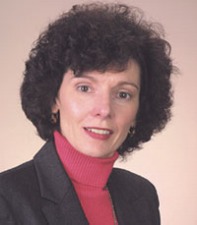Rethinking "the good life"

The email announcing the release of Metlife's latest report, "Discovering What Matters: Balancing Money, Medicine and Meaning," arrived in my inbox in the middle of January .
It was a bleak month, both in terms of story ideas and economic news.
And, I have to say the study results which confirmed my long-held belief that meaning trumps money in defining what constitutes "the good life" was a bright spot for me.
I think, sometimes, the hype and excesses of past few decades have brainwashed those of us in our middle years (and beyond) into believing that we need more to be happy.
More money, more things, more of a love life, more life experiences.
. Those people in all those investment company commercials certainly looked as though they had a lot of money and things and happiness.
So it was refreshing to wade through the study abstract and the graphs and charts that painted a very different picture of what the average joe describes as "the good life."
And it seems, once again, my grandma was right.
It's the people we know, the social and family connections we make and knowing that the work we do matters to ourselves and our community that's at the core of "the good life."
It's a message that we all need to take to heart, especially in light of pervasive uncertainties that surround us.
I know theat there are readers out there who may be thinking about going back to work. Or those of you, like me, who will be planning to stay in the work world a bit longer. and this is where rethinking "the good life" can be a positive.
I had the privilege of listening in on a seminar by Richard Leider, a Metlife advisor and the author of the book "Repacking Your Bags," on which the study was based.
"When we are at the mercy of so much bad news, we really can build our own good life," Leider said. "Purpose is what holds the good life together."
His advice take a look at what you value in life, and try to work toward those values in how you structure your time and ultimately, your work.
This crisis could be a fresh start for all of us.
Maybe its "bye bye, financial freedom dream," but according to Leider, that's OK.
Debbie Gardner
PRIME Editor
